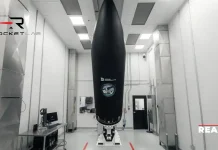INTERNATIONAL MICROWAVE SYMPOSIUM (IMS) – In IMS Booth #7078, pSemi Corporation, a Murata company focused on semiconductor integration, announces the production readiness of two new mmWave ICs targeted for active antenna systems in 5G base stations, 5G customer premises equipment and point-to-point radio communication applications. In addition to the 8-channel beamforming front end and dual-channel up-down converter ICs, pSemi offers a complete support package of tools and technical expertise to simplify mmWave design and development. The new RF SOI ICs are the latest in our mmWave portfolio that offers full IF-to-RF coverage across the n257, n258, and n260 bands in the industry’s smallest form factors.
“As the n257 band reaches global mainstream use, pSemi is pleased to introduce a suite of mmWave products and tools to support this growing demand,” says Vikas Choudhary, vice president of sales and marketing at pSemi. “With an established history in high-frequency semiconductor innovation and manufacturing, pSemi has the expertise and infrastructure required to deliver mmWave solutions with the performance and quality our customers and partners can trust.”
Beamformer & Up-down Converter IC Features & Benefits
The PE188200 beamformer IC (n257 band) and PE128300 up-down converter IC (n257, n258 band) offer a wide range of features and benefits to 5G FR2 system designers, including:
- Smallest footprint per channel – Monolithically integrated RF SOI ICs with the industry’s smallest form factors make it easy to build large arrays without the need for extra routing.
- Full IF-to-RF coverage – Up-down converters can be paired with up to four pSemi beamformers to support massive-MIMO, hybrid-beamforming and other active antenna configurations.
Additionally, the PE188200 8-channel beamformer IC offers:
- Flexible antenna design – The 8-channel beamformer IC supports four dual-polarized or eight single-polarity antenna elements, and scaled configurations for optimum array gain, EIRP, and antenna directivity.
- Beamforming accuracy – Linear POUT at the desired EVM with low RMS phase and amplitude error for increased array gain and antenna directivity ensures accurate beamforming.




